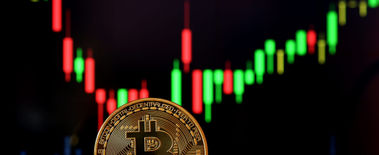After closely observing the recent developments concerning cryptocurrencies in Russia, it seems president Putin is now acting under some sort of pressure to fast-track everything crypto.
The mighty Russian Federation, which until a year ago was very clear with how they will treat cryptocurrencies, has now made a complete U-turn.
From pitching a total ban on crypto assets in 2022, to making crypto mining fully legal and also endorsing crypto payments for international transfers is indeed telling.
Before we go further, here’s a quick timeline of five important news stories that will help you understand this abrupt shift better.
- In March 2024, the US treasury published a detailed report of how Russian-based fintech companies were using crypto to settle payments with their foreign partners effectively avoiding Western sanctions.
- In April, Anatoly Aksakov, Chairman of the State Duma Committee on the Financial Market in Russia, issued a statement that the government is mulling a ban on cryptocurrencies. “The need for a ban is due to the fact that today cryptocurrency – is a quasi-currency that replaces the ruble in the country,” is how Aksakov explained it.
- In July, contrary to Aksakov’s statements, credible reports emerged that there is a state-backed policy to encourage companies to use crypto to evade western sanctions.
- In July itself, Russia passed bills legalising crypto mining. And then in August, Bloomberg reported that Russia is very close to starting trials of “cryptocurrency exchanges and use of digital tokens for international transfers.”
- Now a Chainalysis report, published last week, details the Russian plan to evade sanctions using crypto for international payments. Also, the report cites Russia’s local news outlet Kommersant claiming that they may launch “Chinese Renminbi (RMB) Yuan and BRICS-based stablecoins,” to facilitate international transfers using crypto.
As we can see, it is clear that Russia is moving fast towards developing a crypto infrastructure at home. They say necessity is the mother of invention; it is plausible that Russia is moving fast with crypto to evade sanctions.
But let’s skip the “sanctions” for now. Almost all such claims that link recently passed Russian legislations concerning crypto mining and crypto payments for international transfers, have been made by Western media outlets.
Russia Feeling Pressured Due To Trump’s Pro-Crypto Stand?
Here’s something to consider: Russia has been under Western sanctions for over two years now. But why are they drastically changing their stance on cryptocurrencies in 2024? If sanctions were the main driver, they could have done this much earlier. Notably, Russia had no concrete plans to regulate crypto until March this year.
One of the reasons they are acting now could be due to pressure beyond just Western sanctions.
The rapid shift in Russia’s crypto policy coincides with former U.S. President Donald Trump’s pre-election promises to turn the U.S. into a crypto powerhouse.
Russian Policymakers Can’t Ignore Trump
Russian policymakers can’t ignore Trump’s pro-crypto stance. While U.S. domestic politics is already witnessing how “crypto regulation” has become a key issue, what if Trump becomes the next U.S. president and starts delivering on his promise to make the U.S. the crypto capital of the world?
It wouldn’t be prudent for a key U.S. rival to remain on the sidelines.
To understand how Russia will move forward with its crypto regime, it’s important to recognize that Putin’s decision to legalize crypto mining and crypto payments for international transfers is as much political as it is economic.
We all saw how Russia actively issued statements in defense of Telegram co-founder Pavel Durov after he was arrested by French police last month. President Putin personally took a jibe against the French authorities saying he doesn’t understand their actions against Durov. That’s highly unusual in Russia, especially since Durov had previously refused to comply with Putin’s administration.
The outcome of the U.S. presidential election in November could trigger a global “crypto race,” and we may see more governments worldwide accelerating their crypto policies. Russia is preparing to counter whatever Trump might do to make the U.S. the crypto capital of the world—if elected.
Disclaimer: The views expressed in this article belong solely to the author, and not necessarily to the author’s employer, organization, committee or other group or individual.













